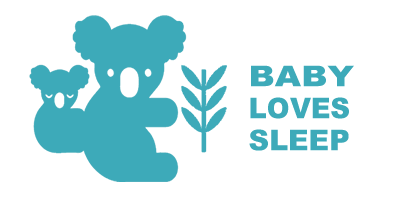Your Cart is Empty
Take the Quiz Here
Question 1
When your baby wakes up in the middle of the night crying, what's your first instinct?
A) Rush to their side immediately, soothing them with cuddles and reassurance.
B) Wait a few minutes to see if they can settle themselves back to sleep before intervening.
Question 2
Your baby is fussing during playtime, what do you do?
A) Drop everything and focus solely on comforting and engaging with your baby until they're happy again.
B) Continue with your activity, offering occasional reassurance while encouraging your baby to self-soothe.
YOUR SUPER POWER IS REVEALED BELOW
If you answered A to both questions, then your super power is:
Super Responder
If you answered B to both questions, then your super power is:
Chill Champion
If you answered a combination A/B on both questions, then you are the ultimate super parent switching between powers!
Let's take a look at the two contrasting styles
When it comes to baby sleep, parents often find themselves navigating different approaches to meet their little one's needs.
Responsive Parenting Approach
ABOUT YOUR POWER: SUPER RESPONDER
Responsive parenting, as the name implies, means quickly tending to your baby's needs, whether it's hunger, comfort, or affection. This approach prioritizes immediate attention, with parents promptly responding to their baby's cues, ensuring their needs are promptly addressed.
Advocates of responsive parenting argue that it strengthens the bond between parent and child and promotes feelings of security and love in babies.
Hands-Off Parenting Approach
ABOUT YOUR POWER: CHILL CHAMPION
On the opposite end of the spectrum lies the hands-off approach, where parents take a more relaxed stance towards their baby's sleep signals. Rather than immediately responding to every cry, parents in this camp may wait a bit longer before stepping in, giving their baby space to self-soothe and develop independent sleep skills.
Supporters of this method suggest that it fosters self-regulation and cultivates healthy sleep patterns early on.
Which One Works Best?
Ultimately, the choice between these two approaches comes down to what suits you and your baby best. Parenting isn't one-size-fits-all; what works for one family may not work for another. Trust your instincts and seek a balance that aligns with your values, preferences, and your baby's unique temperament.
Whether you lean towards a responsive approach, a hands-off approach, or a mix of both, remember that there's no definitive right or wrong way to parent. The most important thing is to be attuned to your baby's needs and provide them with love, care, and support as they grow. Trust yourself, and rest assured that you're doing your best for your little one.
Always Follow Safe Sleep Guidelines
Always place baby on their back to sleep. Swaddling helps keep babies sleeping on their backs.
Keep baby’s face and head uncovered. Avoid using beanies, hats or hooded clothing during sleep.
Keep the crib free of soft toys, pillows or loose blankets to avoid the risk of suffocation.
Use a firm mattress and avoid crib bumbers.
Once baby shows signs of rolling, they should no longer be swaddled.

Best Sleep Sack We Have Tried!
Amazing! We couldnt get our baby out of a swaddled we tried everything and as soon as we got this he took to it straight away"- Cindee D

Did not disappoint!
"Looked high and low for the perfect sleeping bag for my 5 month old and was not disappointed. She loves the comfort of having her hands being warm and covered but needed to be safe when rolling in her sleep"- Allison M

Game Changer!
“At 7 months my baby was impossible to transition out of his swaddle. A friend suggested the Sleepy Hugs and we haven’t looked back. It’s amazing! Pat loves his Sleepy Hugs” - Erica B



























